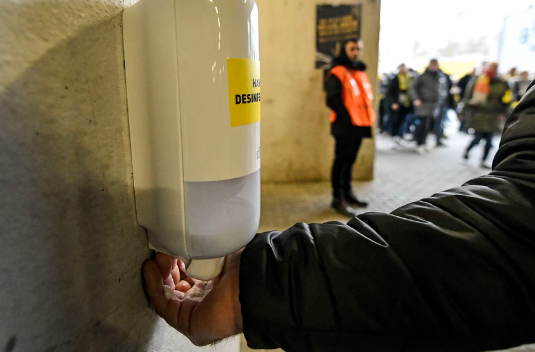Wednesday March 11, 2020 ~ BC
~ West Shore Voice News
As the season for large sporting event and outdoor festivals approaches, decisions regarding mass gatherings can be considered on a continuum from no changes needed, to enhanced communication to attendees, to risk mitigation strategies being employed without cancelling the event, through to postponement or cancellation of the event.
The Public Health Agency of Canada (PHAC) discusses risk-informed decision-making for mass gatherings during the COVID-19 global outbreak on their website. These decisions are made jointly between event organizers and public health officers.
As stated in that document, risk mitigation strategies could include:
- reducing the number of participants or changing the venue to prevent crowding;
- staggering arrivals and departures;
- providing packaged refreshments instead of a buffet;
- increasing access to handwashing stations;
- promoting personal protective practices (hand hygiene, respiratory etiquette, staying home if ill);
- offering virtual or live-streamed activities; and
- changing the event program to reduce high risk activities such as those that require physical contact between participants.
Mass gatherings occur in a range of public places (e.g., spiritual and cultural settings, theatres, sports arenas, festivals, conference halls) and result in a large number of people being in close contact for extended periods of time. Mass gatherings can contribute to the transmission of respiratory pathogens, such as the virus causing the current outbreaks of COVID-19. However, mass gatherings are not homogenous and the risk must be assessed on a case-by-case basis by Public Health Authorities, event organizers and relevant planners.
Cancelling large events may be recommended from a public health perspective, but compliance and sustainability may be difficult and may cause significant social disruption and public resistance.

Today there was a meeting with faith-based groups in BC led by Premier John Horgan with Health Minister Adrian Dix and BC Provincial Health Officer Dr Bonnie Henry.
For those sorts of meetings, the idea of virtual worship was one idea, or holding the same event twice, in two different time slots so that fewer people attend at each time.

On Vancouver Island, there is a large soccer match scheduled for March 27 and 31 at Westhills Stadium, where Canada Soccer is lined up to play against Trinidad and Tobago. The March 27 game quickly sold out in a matter of days after tickets went on sale February 20, before the COVID-19 pandemic was expected in such force.
PHAC recommends conducting a risk assessment when determining the public health actions related to a mass gathering during the COVID-19 outbreak. This involves assessing the epidemiology, related impacts, and the weight (importance) of each of the factors involved in the risk assessment.

The rationale for the potential health risks of mass gatherings include: increased crowd density, restricted points of access/exit which force participants through high touch areas (e.g. doors, elevators), and limited medical care.
The diversity of spectators and participants can be varied which can increase the risk of communicable disease transmission due to close contact with people who have a diverse risk factors and/or immunological status. Limited environmental cleaning and the potential for individual health measures (e.g. hand hygiene) may play a role in increasing health risks at mass gatherings.




